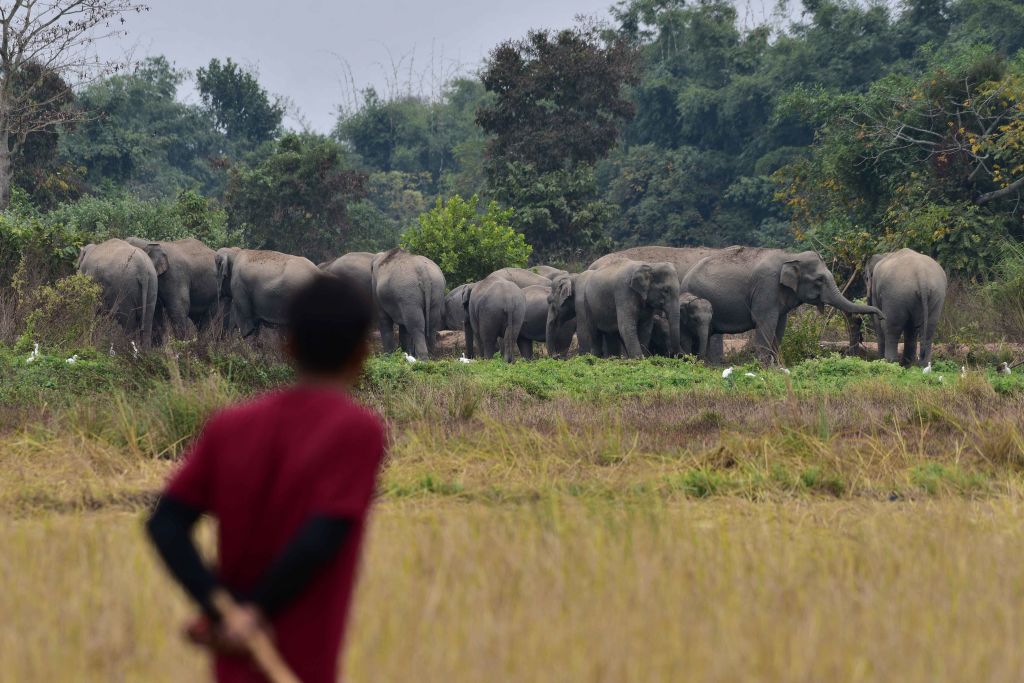
In 2015, a 62-year-old man named Kunjumon Devasey from a remote village in Kerala arrived at his local forest division office to turn himself in. His crime: for nearly two years, the former forest watcher was an accomplice to a ring of poachers who had killed over 20 elephants in the southern Indian state. Devasey's wild confessions eventually saw him get charged with 16 poaching cases, but he had no regrets: "I've no future but my conscience was killing me. It had to be done,” he told reporters.
Devasey’s whistleblowing also led to the discovery of the biggest case of elephant poaching in India’s history. Authorities from the government-run Indian Forest Service tracked down and arrested 74 people involved in a poaching syndicate operating across five states in India, including the hunters and carriers, as well as the primary collectors and sponsors of ivory. "In the process, we profiled a massive network operating in India and abroad,” Surendra Kumar, one of the investigators, told India Today at the time.
The case is now the main inspiration behind Poacher, a fictional investigative crime series created, written, and directed by Emmy-award-winning filmmaker Richie Mehta.
Mehta, who previously directed the gripping Netflix drama Delhi Crime, inspired by the 2012 Delhi gangrape case, said he spent years poring over court documents and testimonials related to the case. The series also sheds light on the contributions of Indian forest service officers, Wildlife Trust of India workers, and police constables who helped investigate the ivory poaching ring. At one point, Mehta even spent time with wildlife crime fighters tracking down poachers in remote forests in India. “This is probably an entryway for audiences into all aspects of conservation,” the director tells TIME during an exclusive interview in London.
The series, which can be streamed on Amazon beginning Feb. 23, has also seen leading Bollywood actress Alia Bhatt come on board as an executive producer. “It’s a very human story,” says Bhatt. “From elephants being a part of our family to these wildlife crime fighters protecting us, it just goes to show how we're all deeply connected.”
While Poacher brings together the world of environmental conservation and entertainment, it also aims to raise awareness of the pervasive issue of elephant poaching in India, which hosts one of the biggest populations of Asian elephants globally.
Ivory trafficking was pervasive across India in the 70s and 80s until it was banned in 1986. But even today, the illegal trade of tusks for ivory, which is seen as a luxury status symbol, continues to thrive. In the past three years, India has seen at least 90 instances of ivory tusk seizures, according to the Indian Ministry of Environment, Forest and Climate Change. Last year, it was reported that authorities seized 475 kg, or nearly a thousand pounds of raw ivory, along with 385 ivory artifacts accumulated over five years.
Besides poaching, wildlife experts and conservationists also point to human-elephant conflict as a big challenge for wildlife management. “With competition for resources, the human-elephant conflict is increasing,” Indian minister Bhupender Yadav said at an event in Kerala last year. He continued, “It is unfortunate that on average, 500 people are killed annually by elephants, and about a hundred elephants are killed in retaliation by people.”
For years, many have advocated for legal protection for India’s elephant reserves to protect the country’s estimated 29,000 elephants. The situation is made worse by roads, rail networks, and urban development, which often intersect with elephant reserves, according to the Wildlife Institute of India.
Elephant poaching is also pervasive globally, with poachers responsible for the deaths of about 20,000 elephants annually. Fueled by a demand for ivory in certain parts of Asia, elephant tusks continue to be traded illegally and sold as ivory trinkets in international markets.
For Mehta and his team, these dynamics made the story behind Poacher even more interesting. “Anytime you see such a vast operation of people working together to do something that seems so counterintuitive to goodness, you have to start to look at why that exists,” says producer Sean McKittrick from QC Entertainment.
The consequences are equally clear. “One of the things we address in the show is how eliminating the Asian elephant species affects us,” says Mehta. “I'm still coming to terms with the concept of extinction—what does it mean when a species is gone for eternity?”
More Must-Reads from TIME
- Donald Trump Is TIME's 2024 Person of the Year
- Why We Chose Trump as Person of the Year
- Is Intermittent Fasting Good or Bad for You?
- The 100 Must-Read Books of 2024
- The 20 Best Christmas TV Episodes
- Column: If Optimism Feels Ridiculous Now, Try Hope
- The Future of Climate Action Is Trade Policy
- Merle Bombardieri Is Helping People Make the Baby Decision
Write to Astha Rajvanshi at astha.rajvanshi@time.com